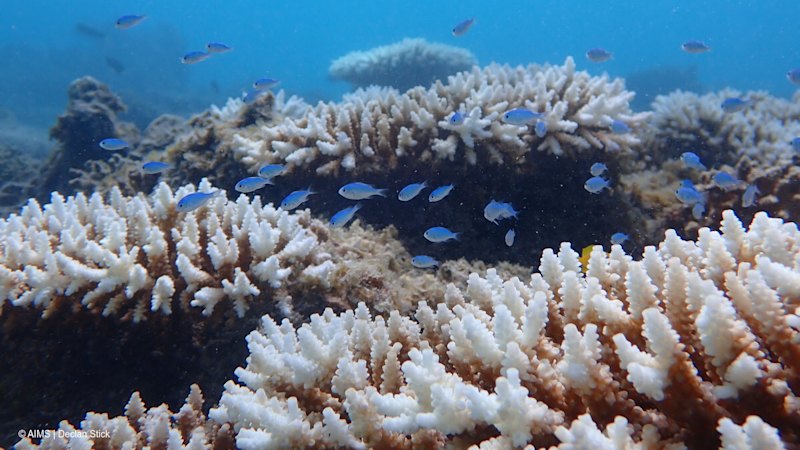
BREAKING: A catastrophic coral bleaching event is decimating West Australia’s reefs due to last summer’s unprecedented marine heatwave, the most extensive and intense recorded. Experts warn that up to 90% of coral could be lost in some areas, with the full impact still unfolding.
Officials from the WA Coral Bleaching Group, convened by the Australian Institute of Marine Science (AIMS), reported shocking levels of bleaching and mortality across a staggering distance of 1,500 kilometers. The latest findings reveal that 31-60% of coral at Ningaloo Reef has suffered bleaching, while 61-90% mortality rates were recorded at both Mermaid and Clerke Reefs in the Rowley Shoals.
Inshore reefs of the southern Kimberley also show alarming bleaching levels between 31-60%, with Ashmore Reef exhibiting 11-30% bleaching. This environmental crisis is not just local; it coincides with ongoing mass bleaching on the Great Barrier Reef, marking the fourth Global Coral Bleaching Event since 2023.
“Areas which had given us hope… have been hit hard this time,” said Dr. James Gilmour, AIMS senior research scientist. “The length and intensity of the heat stress… is something we’ve never seen before.”
Temperatures off the WA coast reached their highest since records began, according to Dr. Claire Spillman from the Bureau of Meteorology. The stress on coral reefs is anticipated to surpass previous records set during the 2011 La Nina and 2016 El Niño.
While some coral may recover, experts warn it could take 10-15 years for full recovery. The implications of this event are dire, with climate change attributed as the leading threat to coral systems globally.
Emotions are running high. Sophie McNeill, WA Greens spokesperson, described the devastation at Ningaloo as “heartbreaking,” likening the affected reefs to a “coral graveyard.” She criticized the state government for ignoring scientific warnings while pushing for fossil fuel expansion. “This should be a wake-up call for the government,” she urged.
As the debate heats up in the WA parliament over the Climate Bill, conservationists are urging immediate action to protect these vital ecosystems. Meanwhile, the proposed Browse Basin gas project by Woodside, risking 1.6 billion tonnes of greenhouse gas emissions, has raised alarm among environmentalists.
The situation is developing rapidly, and the community’s emotional response underscores the urgent need for protective measures. Experts and activists alike are calling for immediate action to combat climate change and safeguard WA’s precious reefs.
As the world watches, the fate of these iconic reefs hangs in the balance, highlighting an urgent need for collective action against climate change.






